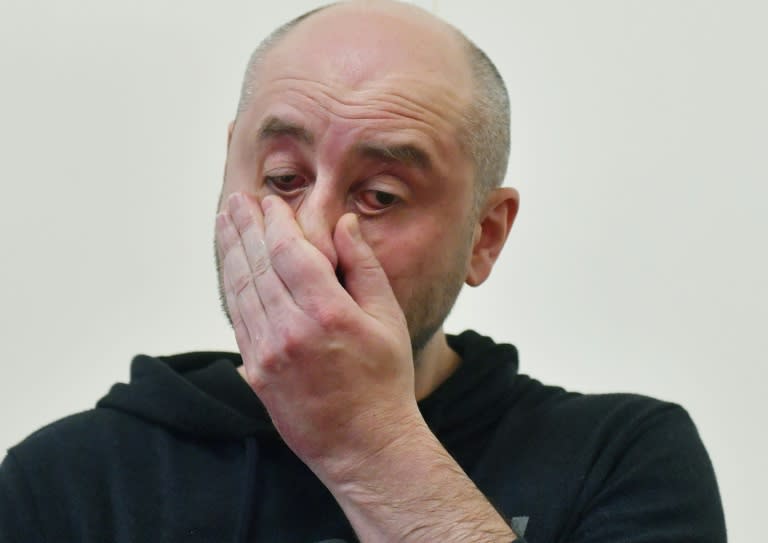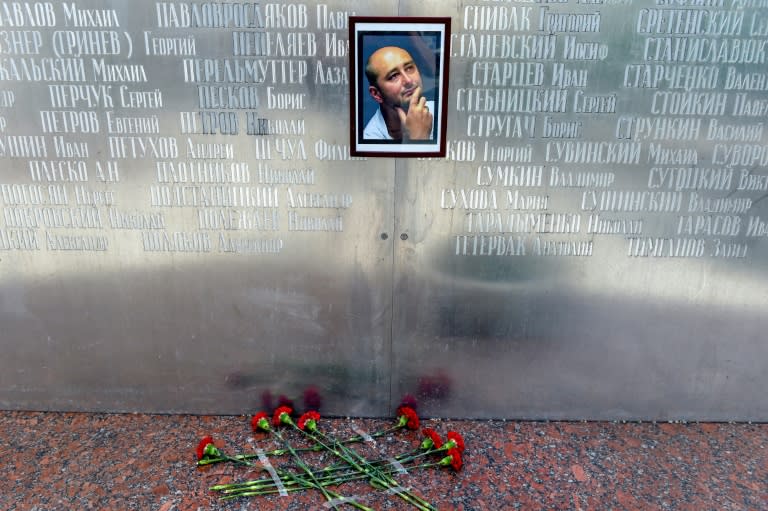Arkady Babchenko: the Russian reporter who came back from the dead
Russian anti-Kremlin journalist Arkady Babchenko, whose fake death Ukraine admitted on Wednesday to staging, has many admirers but probably even more detractors. Babchenko reappeared alive on Wednesday less than 24 hours after he was believed to have been gunned down in Kiev. Ukrainian security services said it was a set-up to foil an attempt on his life by Russia. "I would like to apologise for what you have all had to go through," Babchenko told reporters at a press conference. The 41-year-old, who fought with the Russian army in Chechnya in the 1990s and went on to cover conflicts in Georgia's breakaway region of South Ossetia and Ukraine, had previously faced a campaign of harassment over his reporting. A contributor to media outlets including top Russian opposition newspaper Novaya Gazeta, he regularly accused Russian authorities of hunting down Kremlin critics and unleashing wars in Ukraine, Syria and elsewhere. - 'Good soldier. Bad soldier' - He repeatedly said he hated war and did not want to take up arms again. "I used to be a good soldier," Babchenko wrote in 2017. "And now I am a bad soldier. I want to live more than to die." Babchenko was 19 when he was sent to fight in Russia's first Chechen campaign in the 1990s as a conscript. He fought in the second Chechen campaign in the 2000s as a contract soldier. After serving in the army he went on to become a war correspondent and author. He described his experience in the Chechen conflicts -- which saw Moscow suppress a separatist insurgency in the North Caucasus -- in a book published in English under the title "One Soldier's War". When a brief but bloody war broke out between Russia and Georgia over South Ossetia in 2008, Babchenko went to the separatist region to cover the conflict as a correspondent for Novaya Gazeta, an award-winning opposition newspaper in Russia. "It was him who did for Novaya Gazeta the best reportages from the war in South Ossetia," the newspaper wrote in an editorial, calling him a "true artist". - 'Dying is scary' - Babchenko embraced the popular Kiev uprising that ousted a Kremlin-backed regime in 2014 and went to cover the conflict between Ukranian troops and pro-Russian insurgents in the east of the former Soviet country following the annexation of Crimea by Moscow. In recent years, he became increasingly alienated from Moscow journalists critical of the Kremlin. His bombastic Facebook posts constantly pushed the boundaries of good taste and some of his colleagues and followers stopped reading him on social networks. "From Babchenko's position, even his Moscow colleagues looked this way: weak, conformist, inclined to endless compromises," Russian journalist Yury Saprykin wrote on Meduza, an independent news site. In a controversial 2016 Facebook post, Babchenko wrote he had "no sympathy or pity" for the victims of a plane crash carrying Russia's Red Army choir to Syria given Moscow's support for Bashar al-Assad. Pro-Kremlin activists unleashed a campaign of harassment against Babchenko, forcing him to flee Russia last year. He moved to Kiev after living in the Czech Republic and Israel. In Kiev, he hosted a programme on the Crimean Tatar TV station ATR. Known for his caustic style and earthy language, Babchenko endlessly promoted doom-and-gloom scenarios for Russia under Putin. "The motherland will always dump you, my son," he used to say. In a Facebook post hours before the fake killing, Babchenko wrote about his "second birthday" when a Ukrainian general refused to let him on a helicopter that was then shot down by Kremlin-backed rebels, killing 14 people on board in 2014. After announcing Babchenko was alive and that his death was staged, the head of Ukraine's security service congratulated Babchenko on his "third birthday".



